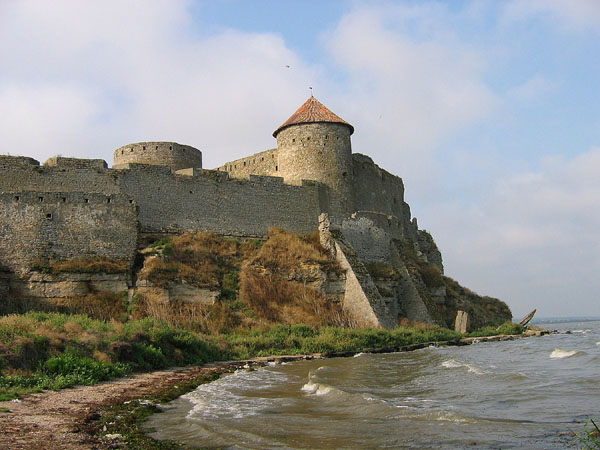Akkerman Convention on:
[Wikipedia]
[Google]
[Amazon]
 The Akkerman Convention was a treaty signed on October 7, 1826, between the Russian and the
The Akkerman Convention was a treaty signed on October 7, 1826, between the Russian and the
 The Akkerman Convention was a treaty signed on October 7, 1826, between the Russian and the
The Akkerman Convention was a treaty signed on October 7, 1826, between the Russian and the Ottoman Empire
The Ottoman Empire, * ; is an archaic version. The definite article forms and were synonymous * and el, Оθωμανική Αυτοκρατορία, Othōmanikē Avtokratoria, label=none * info page on book at Martin Luther University ...
s in the Budjak
Budjak or Budzhak ( Bulgarian and Ukrainian: Буджак; ro, Bugeac; Gagauz and Turkish: ''Bucak''), historically part of Bessarabia until 1812, is a historical region in Ukraine and Moldova. Lying along the Black Sea between the Danu ...
citadel of ''Akkerman'' (present-day Bilhorod-Dnistrovskyi
Bilhorod-Dnistrovskyi ( uk, Бі́лгород-Дністро́вський, Bílhorod-Dnistróvskyy, ; ro, Cetatea Albă), historically known as Akkerman ( tr, Akkerman) or under different names, is a city, municipality and port situated on ...
, Ukraine
Ukraine ( uk, Україна, Ukraïna, ) is a country in Eastern Europe. It is the second-largest European country after Russia, which it borders to the east and northeast. Ukraine covers approximately . Prior to the ongoing Russian inva ...
). It imposed that the '' hospodars'' of Moldavia
Moldavia ( ro, Moldova, or , literally "The Country of Moldavia"; in Romanian Cyrillic: or ; chu, Землѧ Молдавскаѧ; el, Ἡγεμονία τῆς Μολδαβίας) is a historical region and former principality in Centr ...
and Wallachia
Wallachia or Walachia (; ro, Țara Românească, lit=The Romanian Land' or 'The Romanian Country, ; archaic: ', Romanian Cyrillic alphabet: ) is a historical and geographical region of Romania. It is situated north of the Lower Danube and s ...
be elected by their respective Divans for seven-year terms, with the approval of both Powers. It also provided for the retreat of Ottoman forces from both Danubian Principalities
The Danubian Principalities ( ro, Principatele Dunărene, sr, Дунавске кнежевине, translit=Dunavske kneževine) was a conventional name given to the Principalities of Moldavia and Wallachia, which emerged in the early 14th c ...
after their prolonged stay following military actions in 1821 (that were carried in response to the Filiki Etaireía in the Greek War of Independence
The Greek War of Independence, also known as the Greek Revolution or the Greek Revolution of 1821, was a successful war of independence by Greek revolutionaries against the Ottoman Empire between 1821 and 1829. The Greeks were later assisted by ...
), and Tudor Vladimirescu's uprising
Rebellion, uprising, or insurrection is a refusal of obedience or order. It refers to the open resistance against the orders of an established authority.
A rebellion originates from a sentiment of indignation and disapproval of a situation and ...
. The Ottomans also agreed to cede to Wallachia the control over the Danube
The Danube ( ; ) is a river that was once a long-standing frontier of the Roman Empire and today connects 10 European countries, running through their territories or being a border. Originating in Germany, the Danube flows southeast for , pa ...
ports of Giurgiu
Giurgiu (; bg, Гюргево) is a city in southern Romania. The seat of Giurgiu County, it lies in the historical region of Muntenia. It is situated amongst mud-flats and marshes on the left bank of the Danube facing the Bulgarian city ...
, Brăila
Brăila (, also , ) is a city in Muntenia, eastern Romania, a port on the Danube and the capital of Brăila County. The Sud-Est (development region), ''Sud-Est'' Regional Development Agency is located in Brăila.
According to the 2011 Romanian ...
and Turnu. The convention also tackled the Serbian question ''Serbian question'' ( sr, / ) refers to several periods in Serbian history and diplomatic history.
*Establishment of a Serb nation-state, leading up to the Serbian Revolution.
*Official recognition of Revolutionary Serbia as the Principality o ...
: in article 5, autonomy for the Principality of Serbia
The Principality of Serbia ( sr-Cyrl, Књажество Србија, Knjažestvo Srbija) was an autonomous state in the Balkans that came into existence as a result of the Serbian Revolution, which lasted between 1804 and 1817. Its creation wa ...
was given, and the return of lands removed in 1813. Serbs were also granted freedom of movement through the Ottoman Empire. Sultan
Sultan (; ar, سلطان ', ) is a position with several historical meanings. Originally, it was an Arabic abstract noun meaning "strength", "authority", "rulership", derived from the verbal noun ', meaning "authority" or "power". Later, it c ...
Mahmud II
Mahmud II ( ota, محمود ثانى, Maḥmûd-u s̠ânî, tr, II. Mahmud; 20 July 1785 – 1 July 1839) was the 30th Sultan of the Ottoman Empire from 1808 until his death in 1839.
His reign is recognized for the extensive administrative, ...
's repudiation of the convention triggered the Russo-Turkish War (1828–1829).
See also
*List of treaties
This list of treaties contains known agreements, pacts, peaces, and major contracts between states, armies, governments, and tribal groups.
Before 1200 CE
1200–1299
1300–1399
1400–1499
1500–1599
1600–1699
1700–1799
...
References
*Jelavich, Charles ''The Establishment of the Balkan National States, 1804-1920'', University of Washington Press, 1986. . Ottoman Empire–Russia treaties Legal history of Romania Legal history of Serbia History of Moldavia (1822–1859) History of Wallachia (1821–1859) 1820s in Serbia 1826 treaties 1826 in the Russian Empire 1826 in the Ottoman Empire October 1826 events {{Ottoman-stub